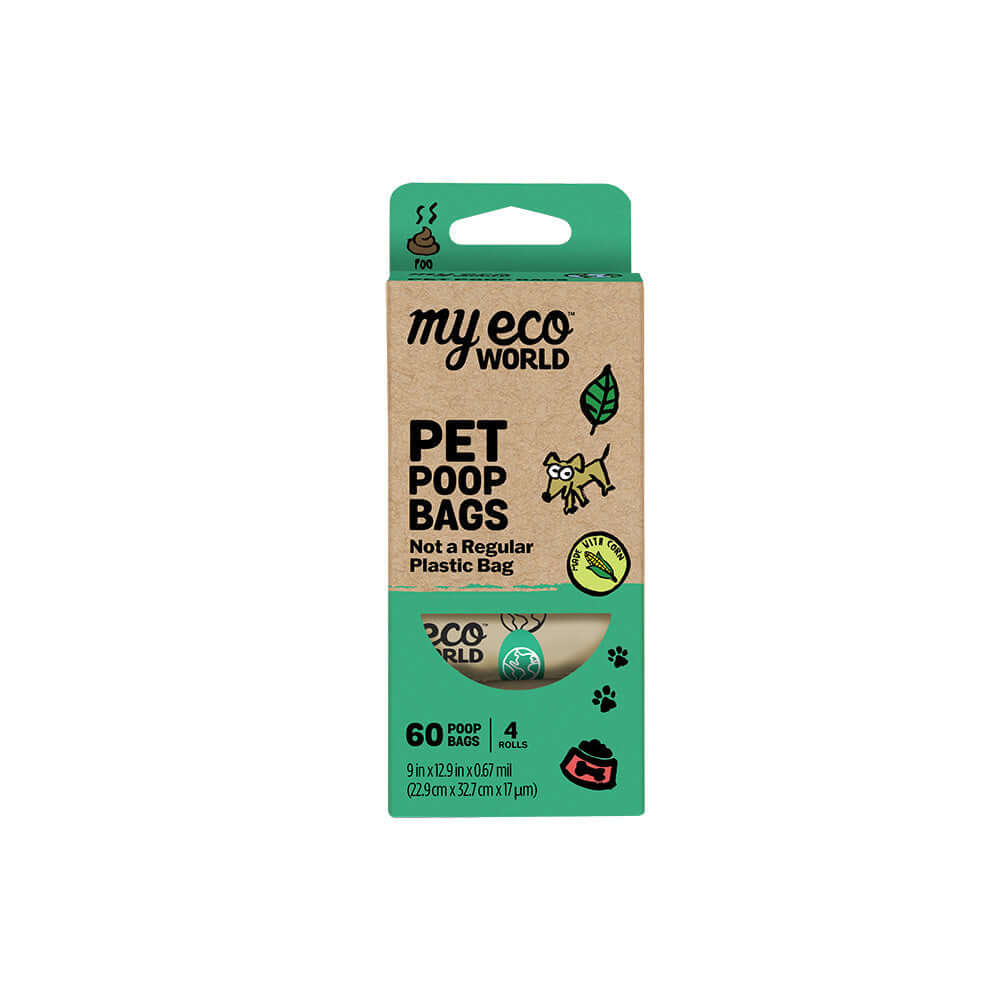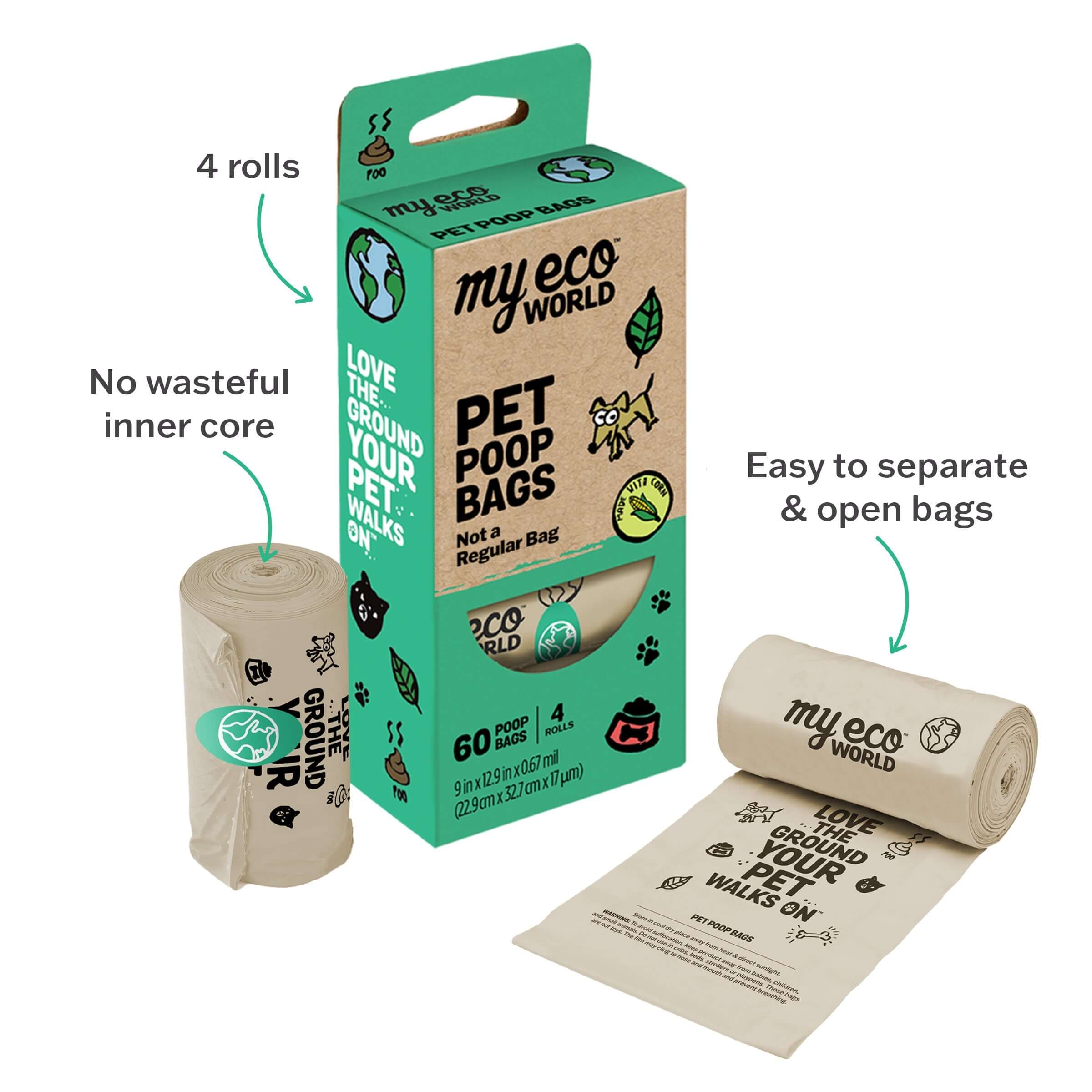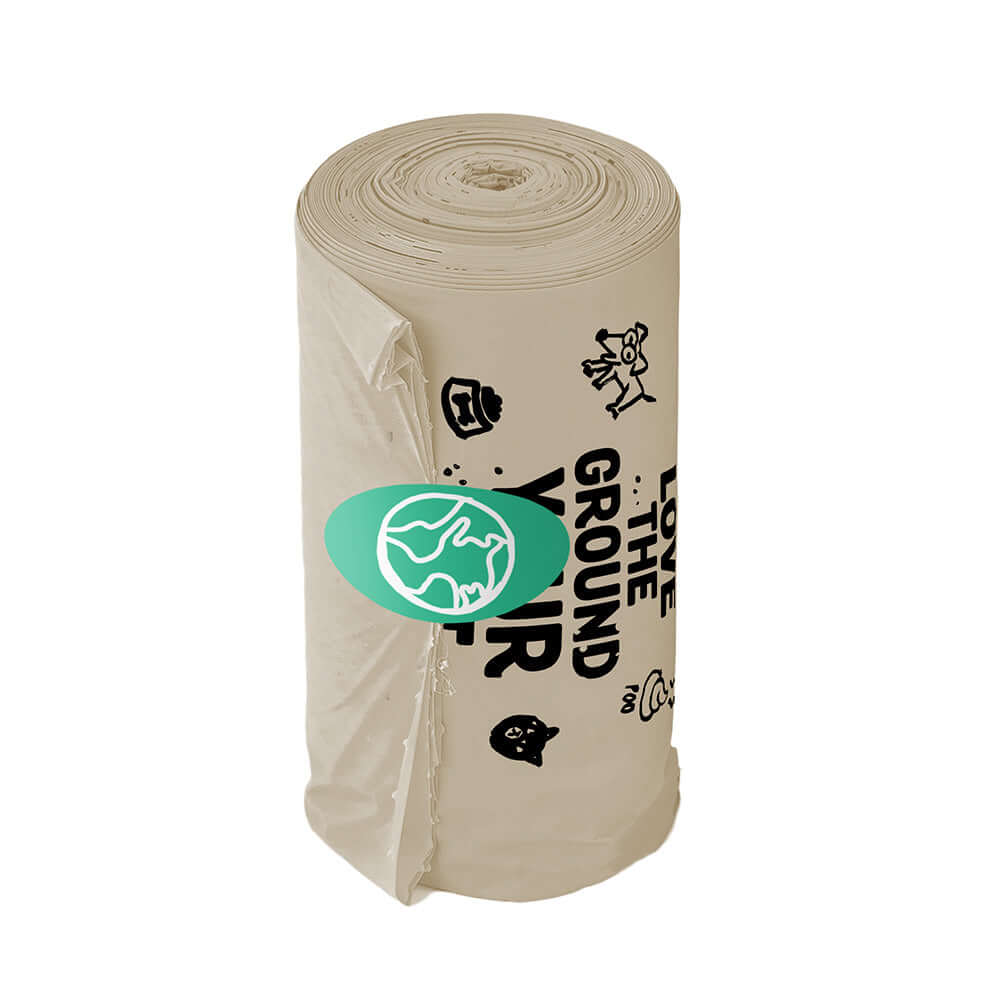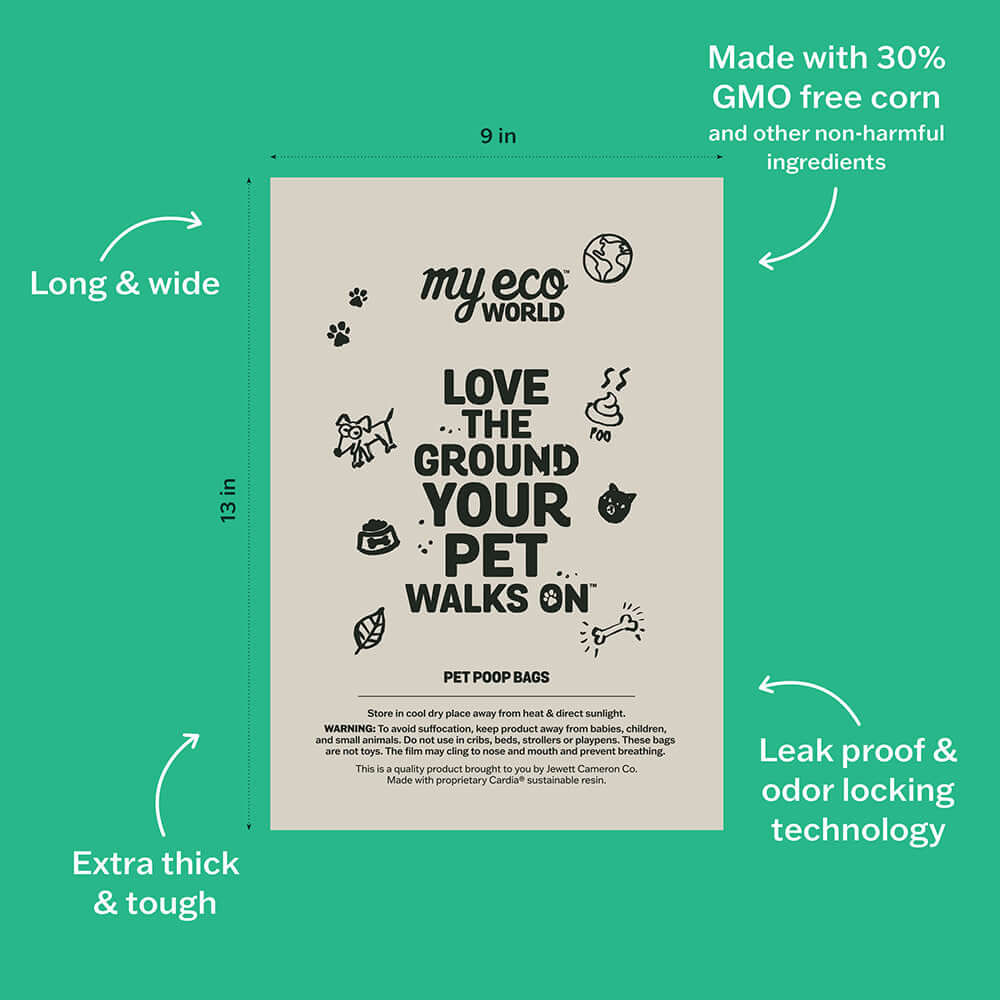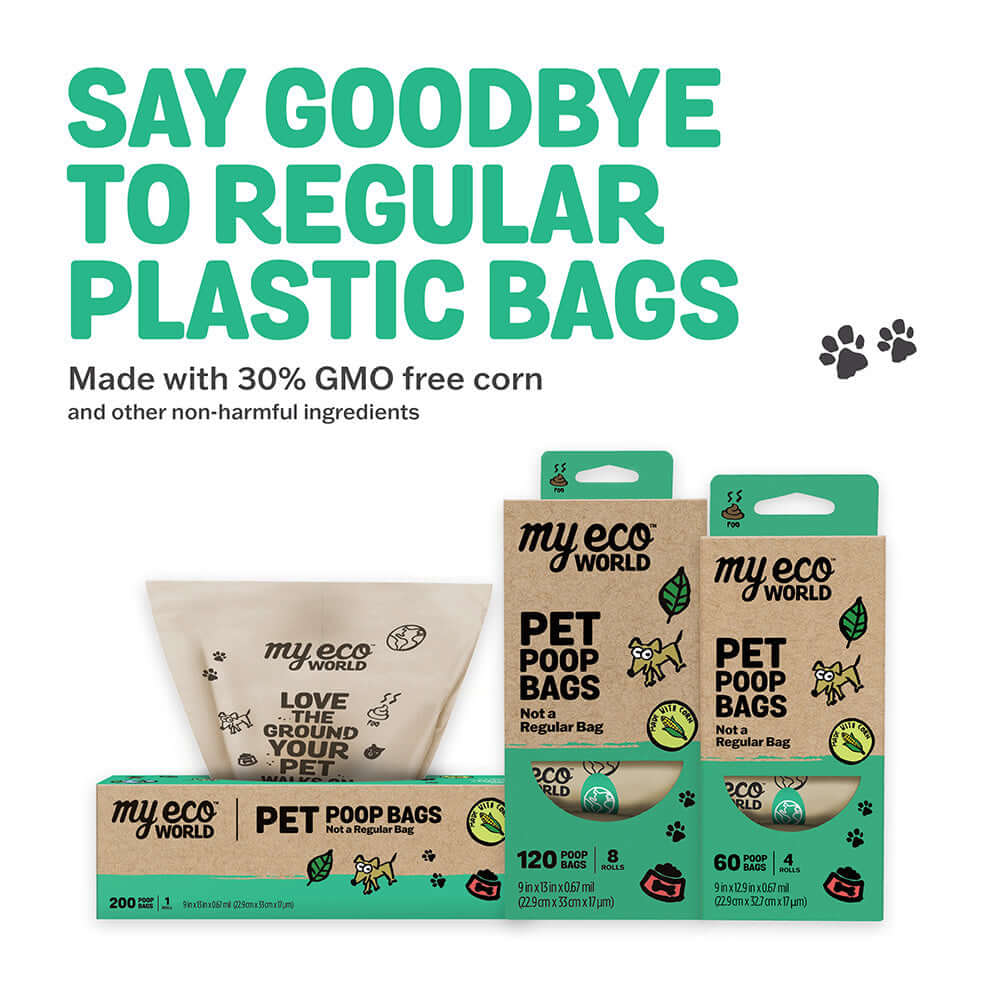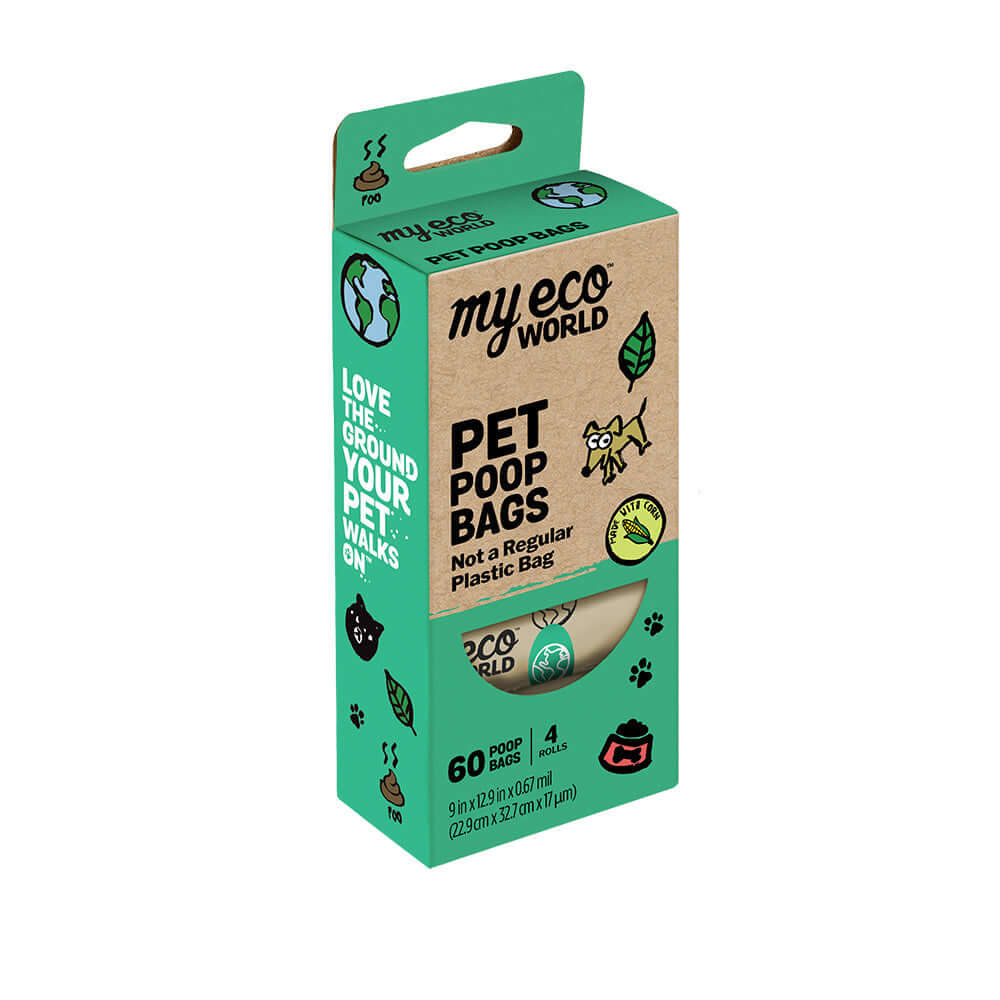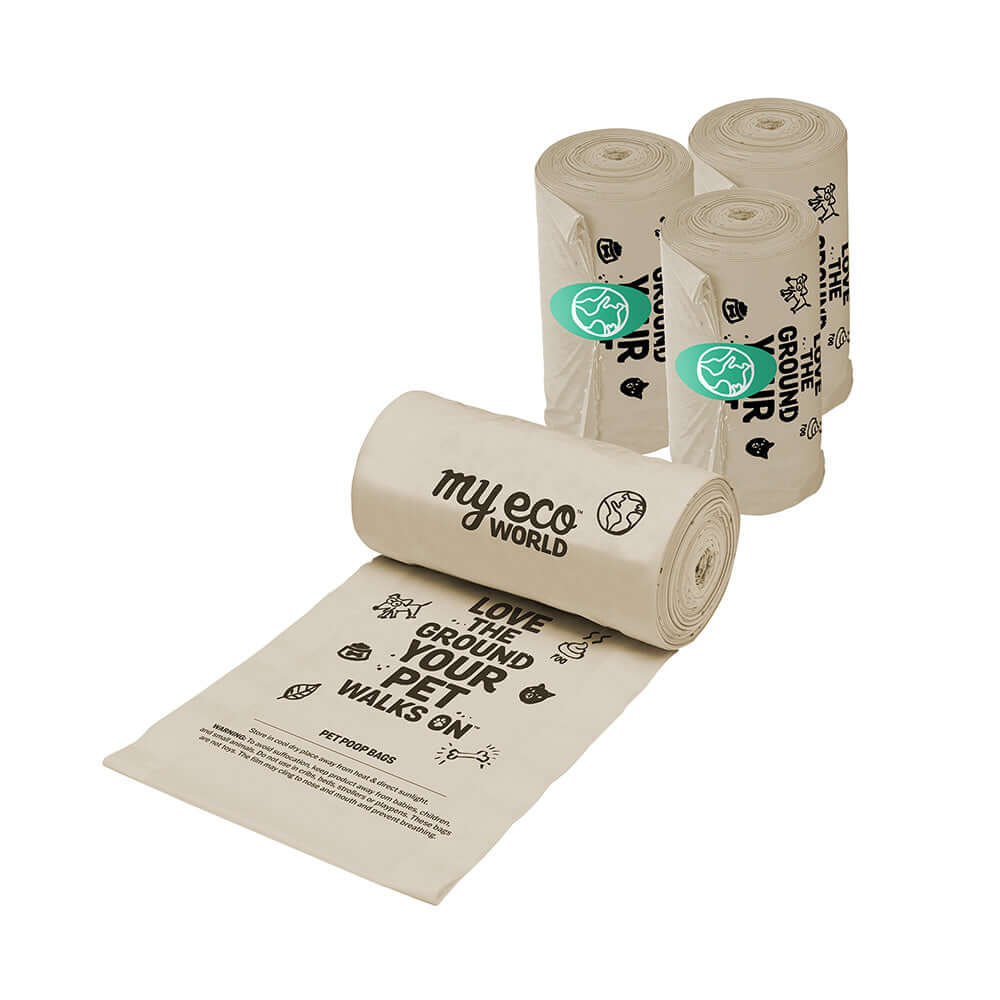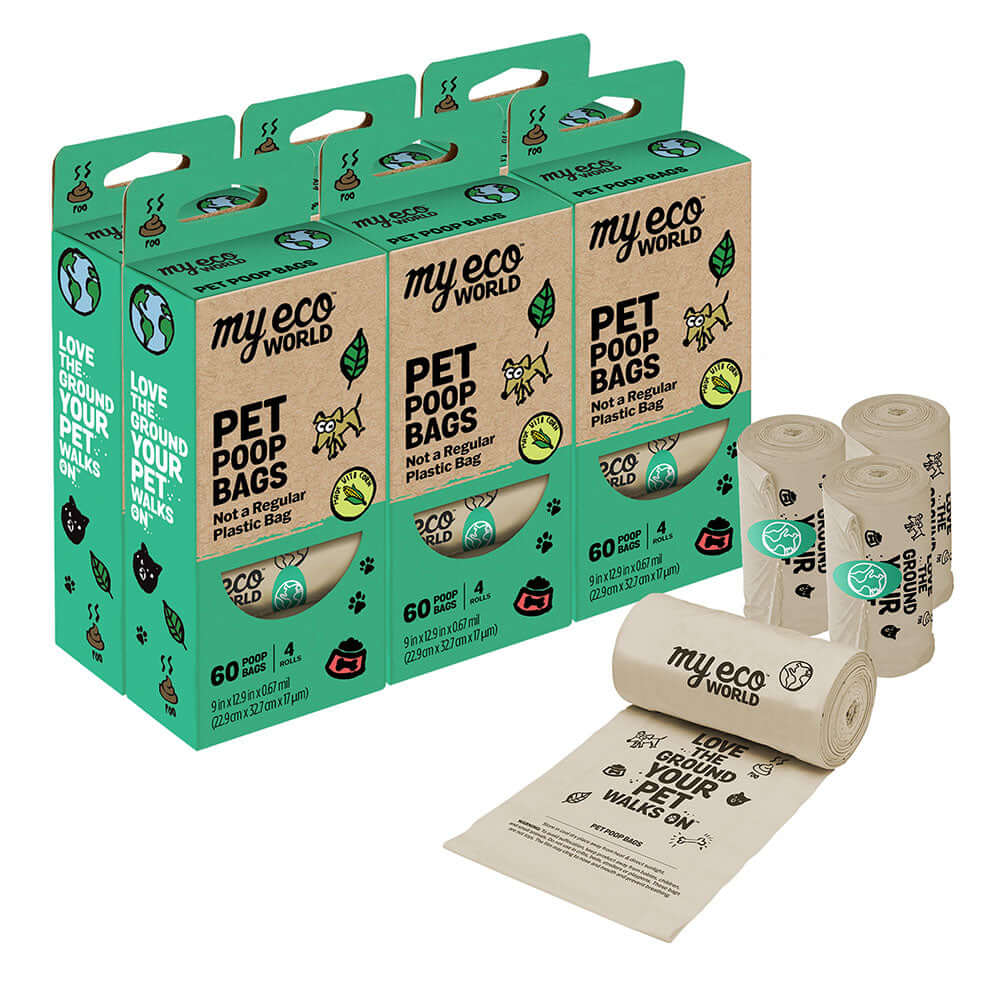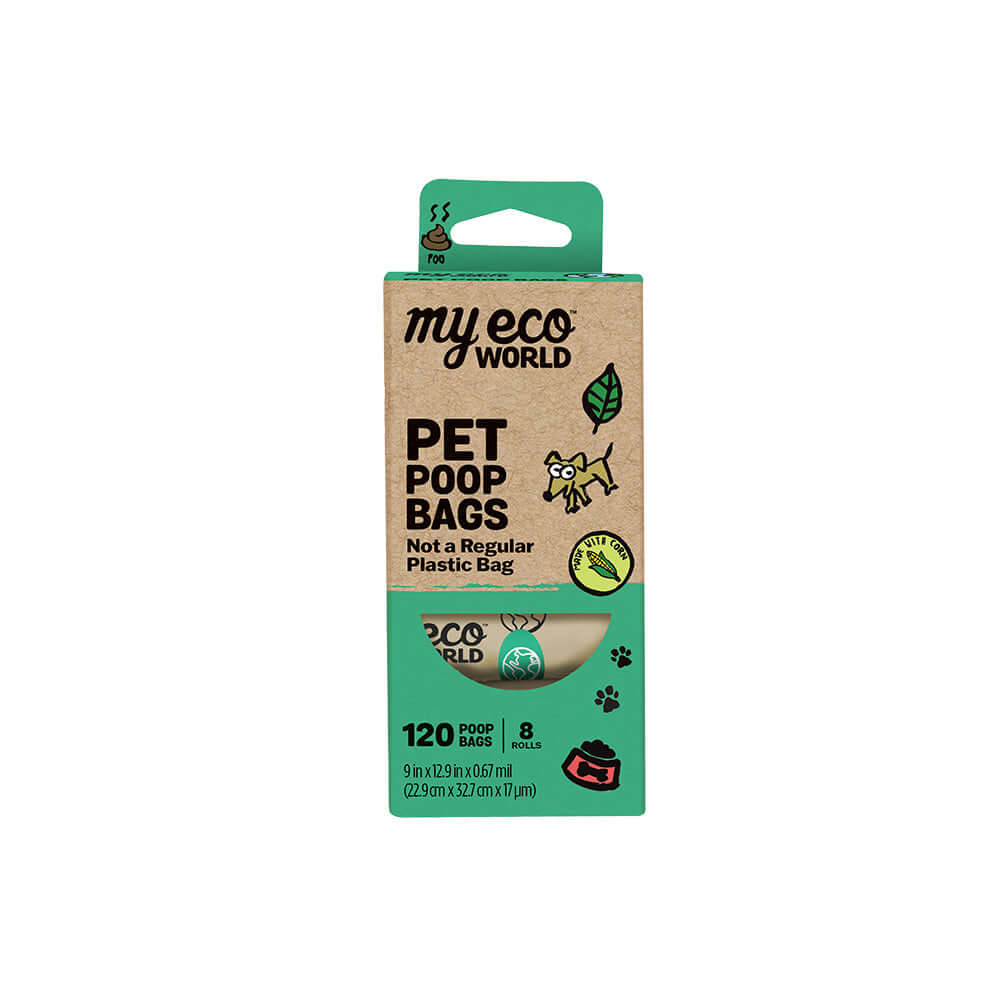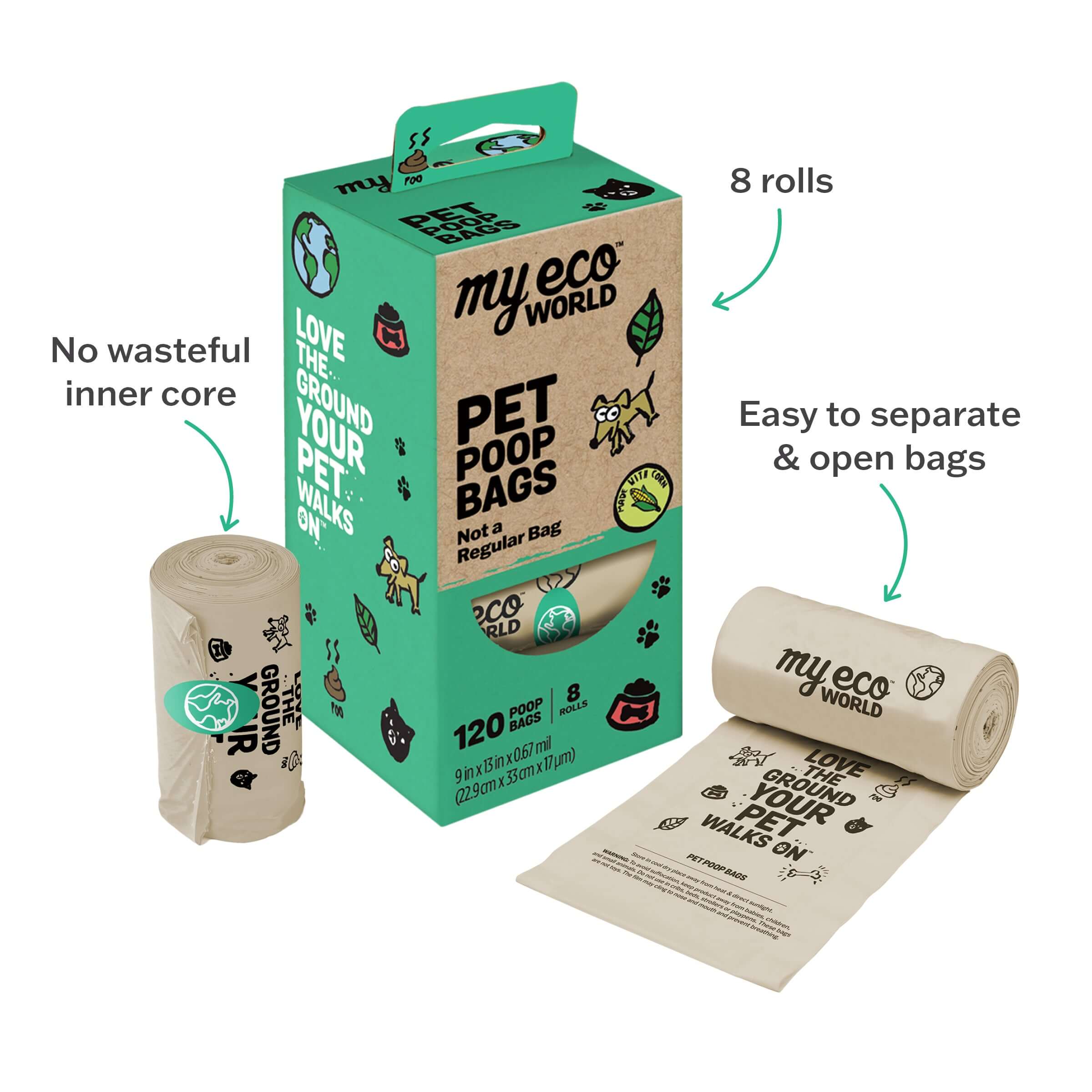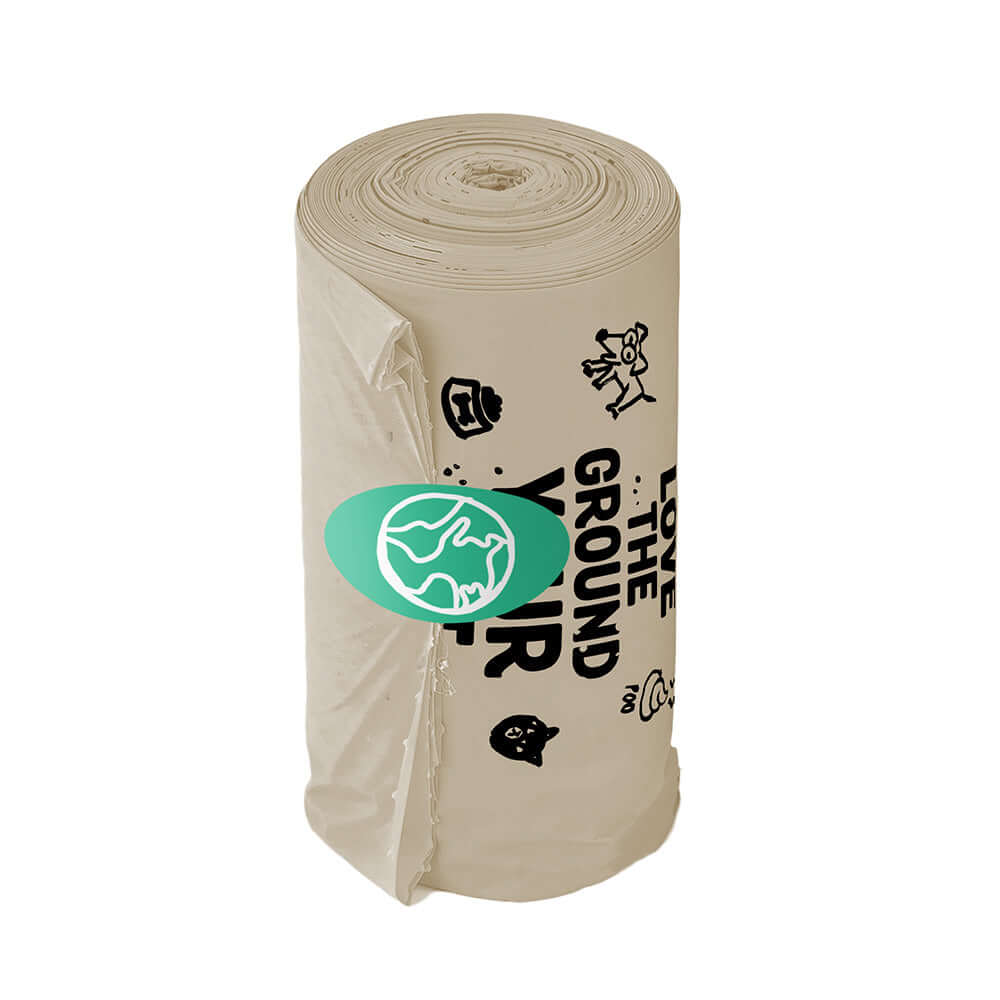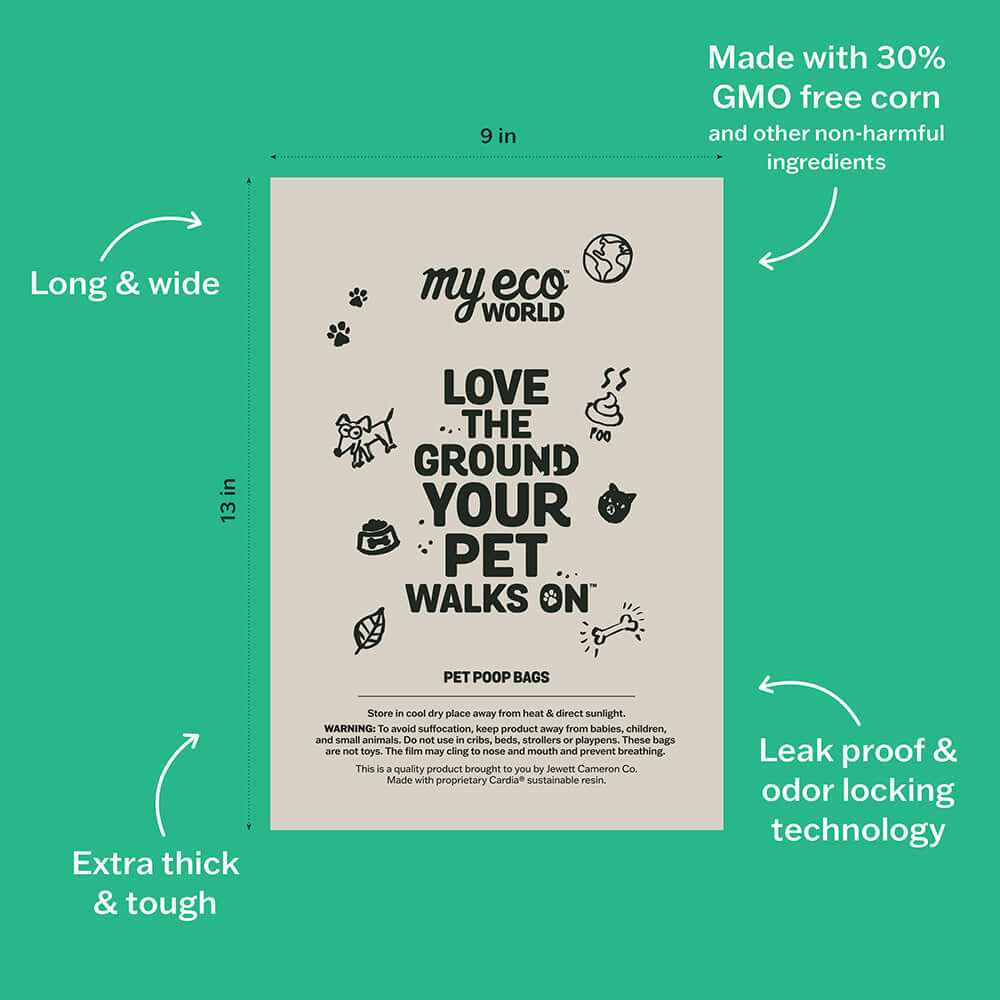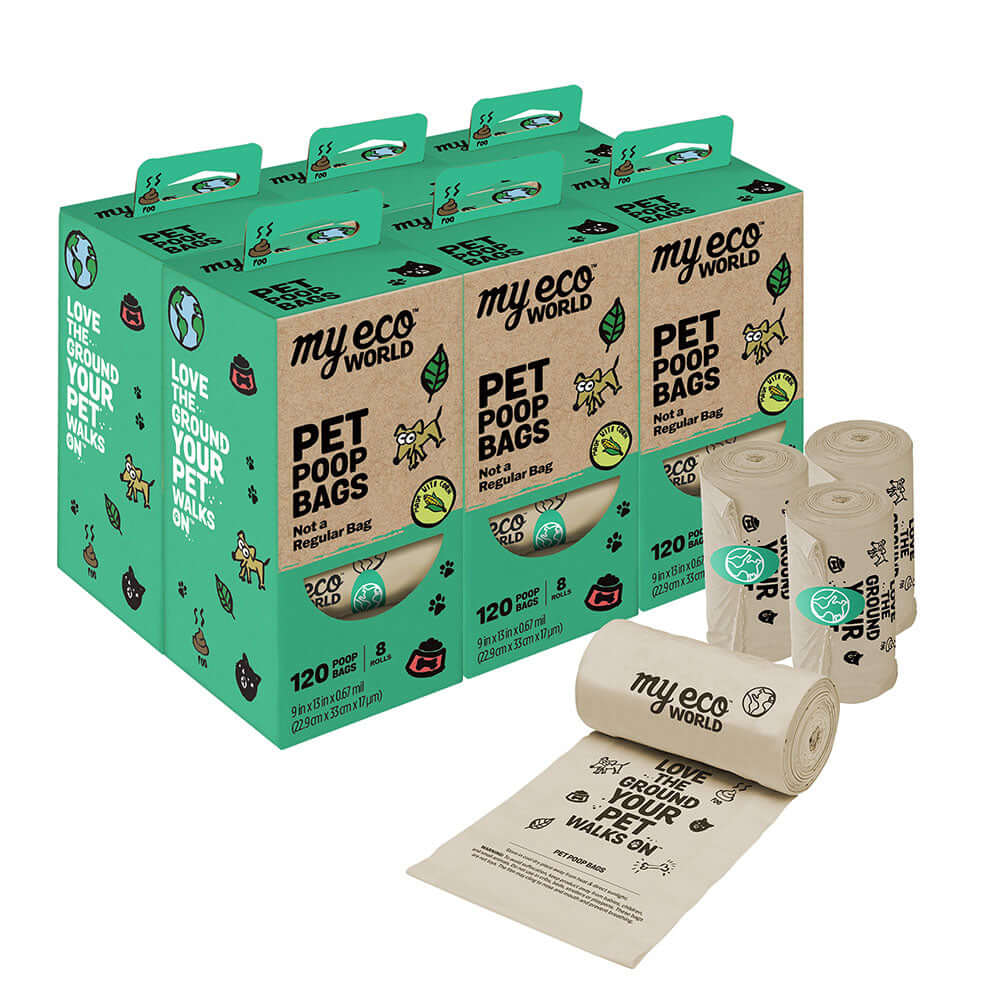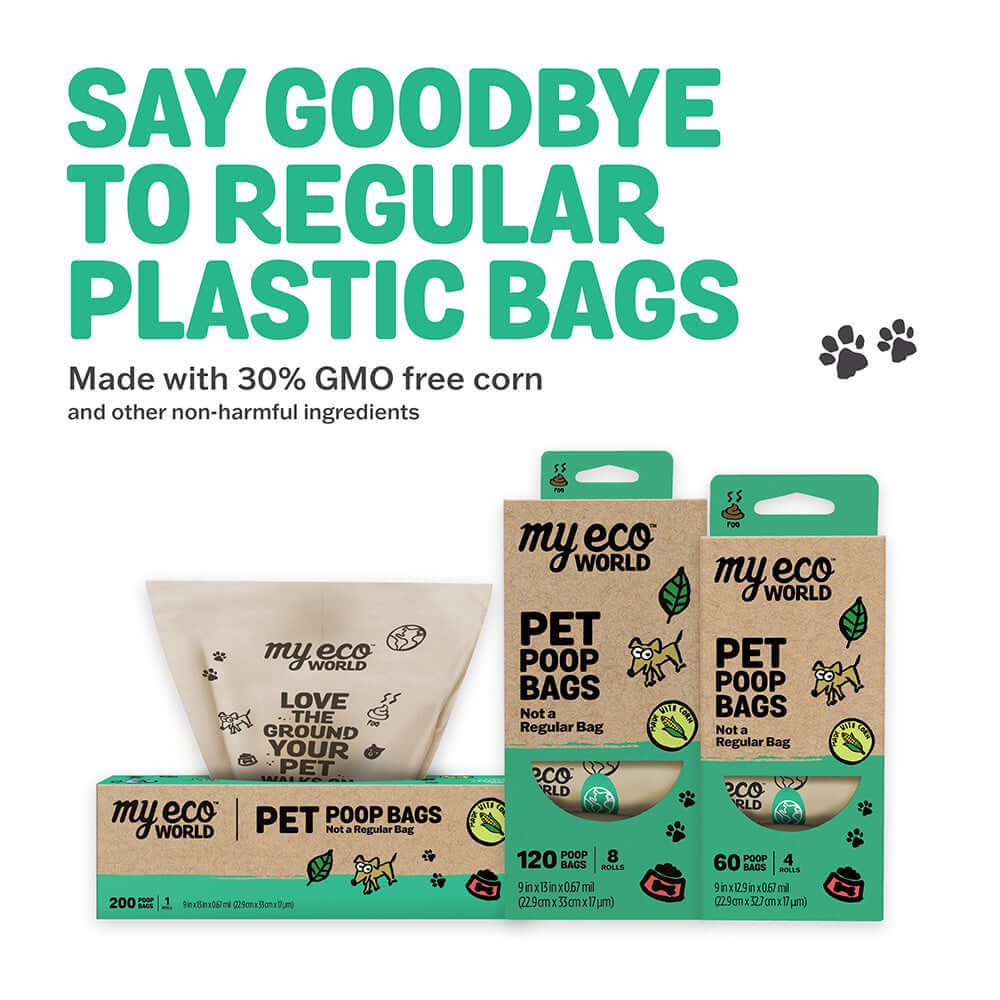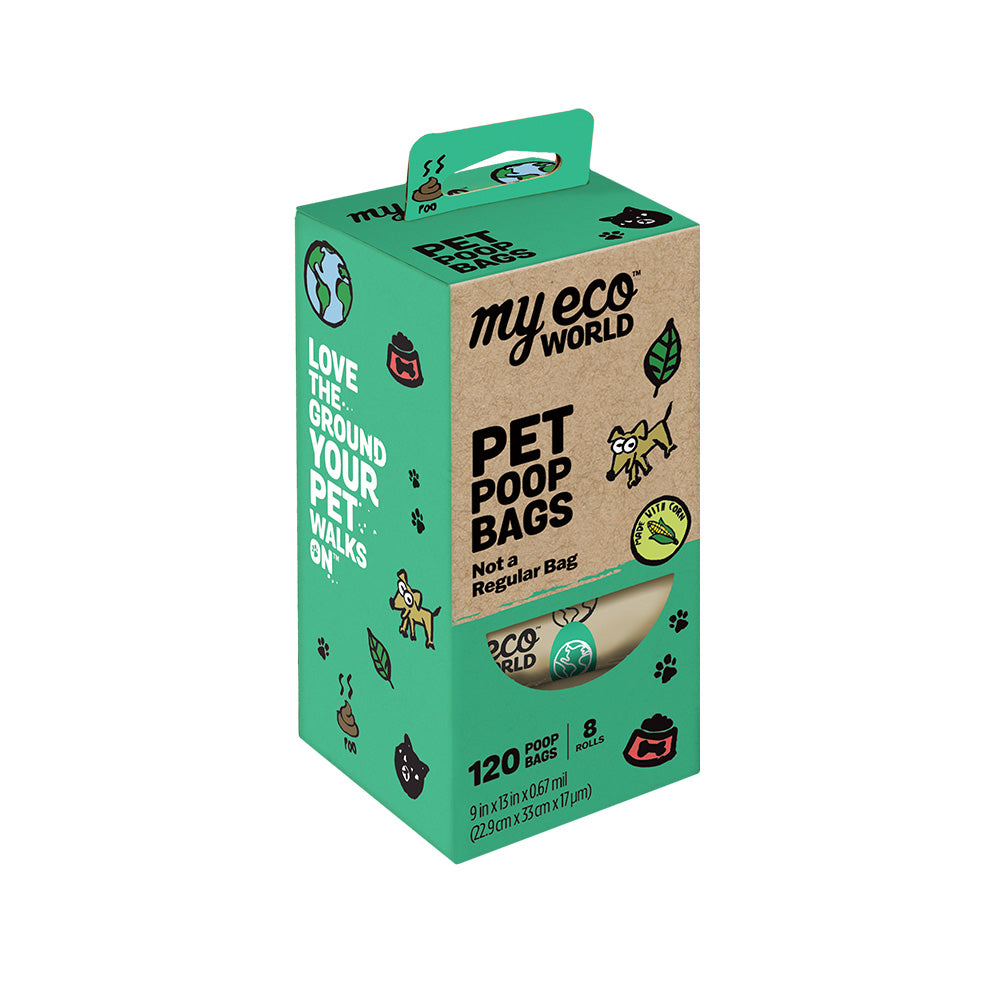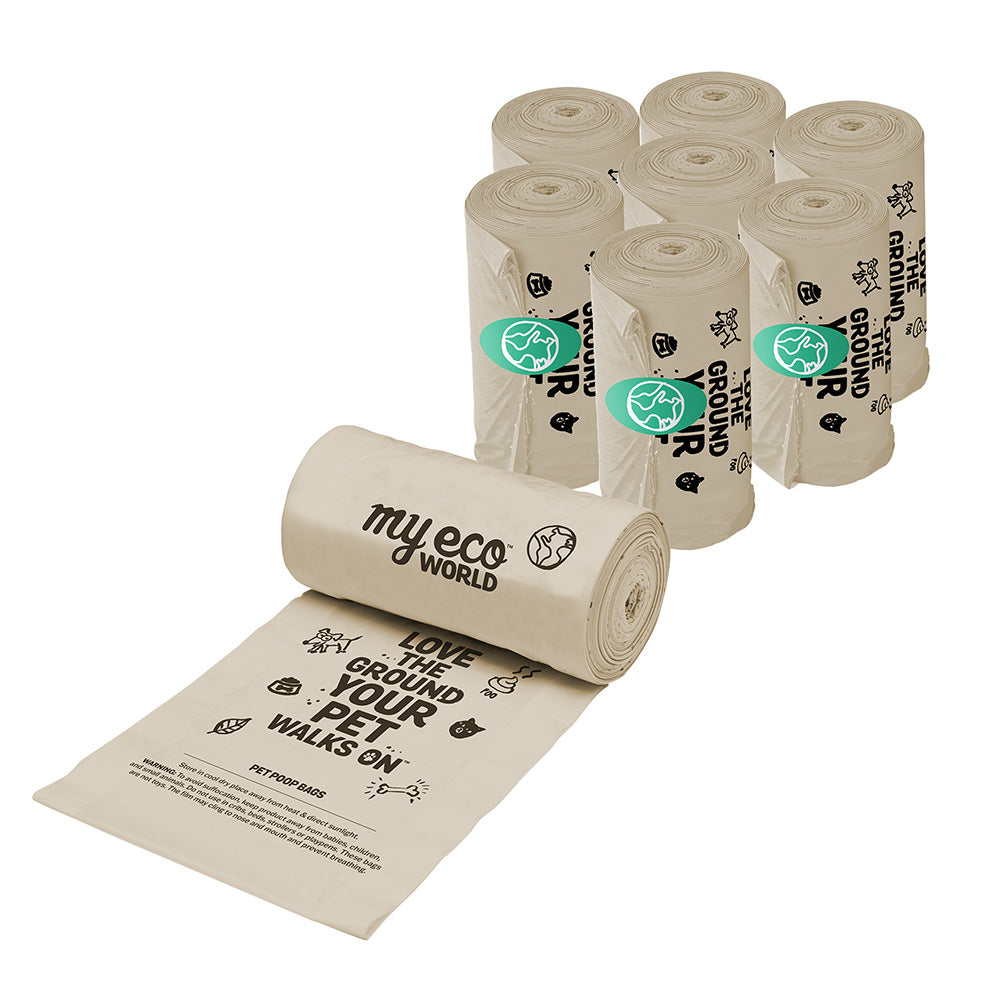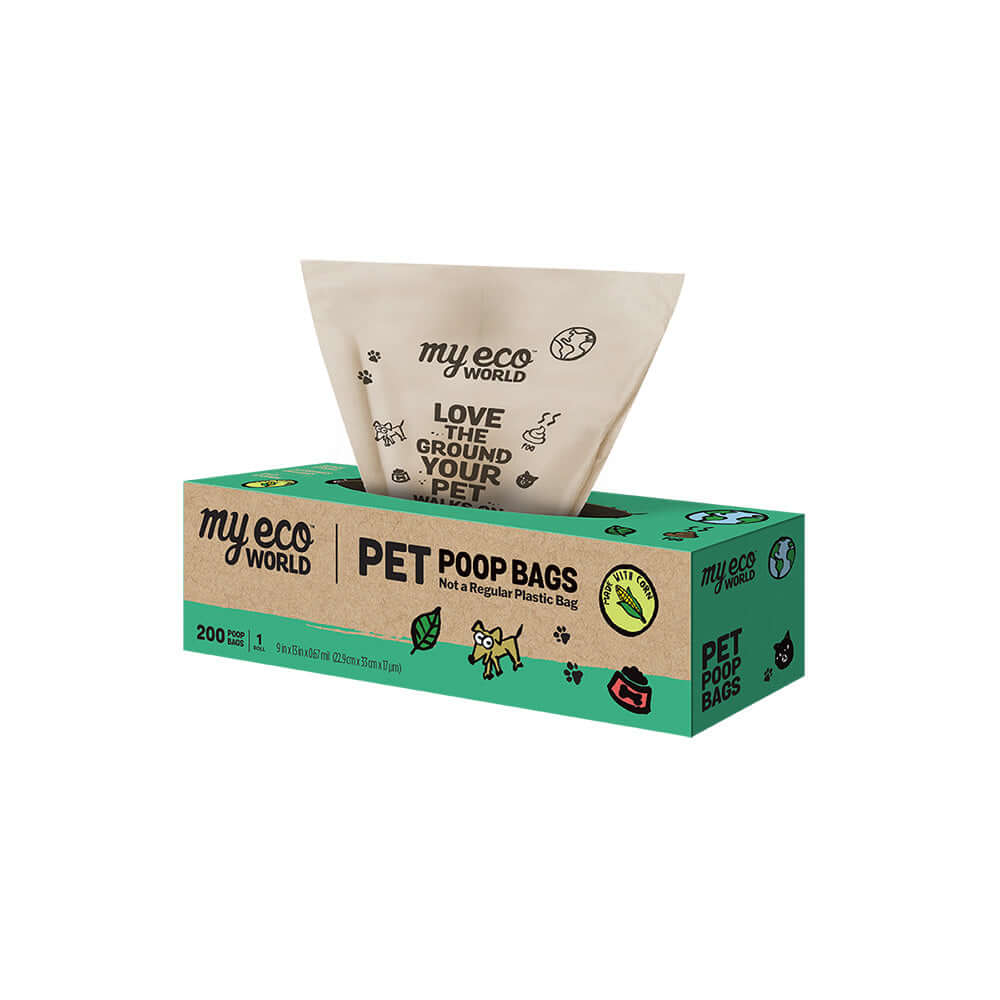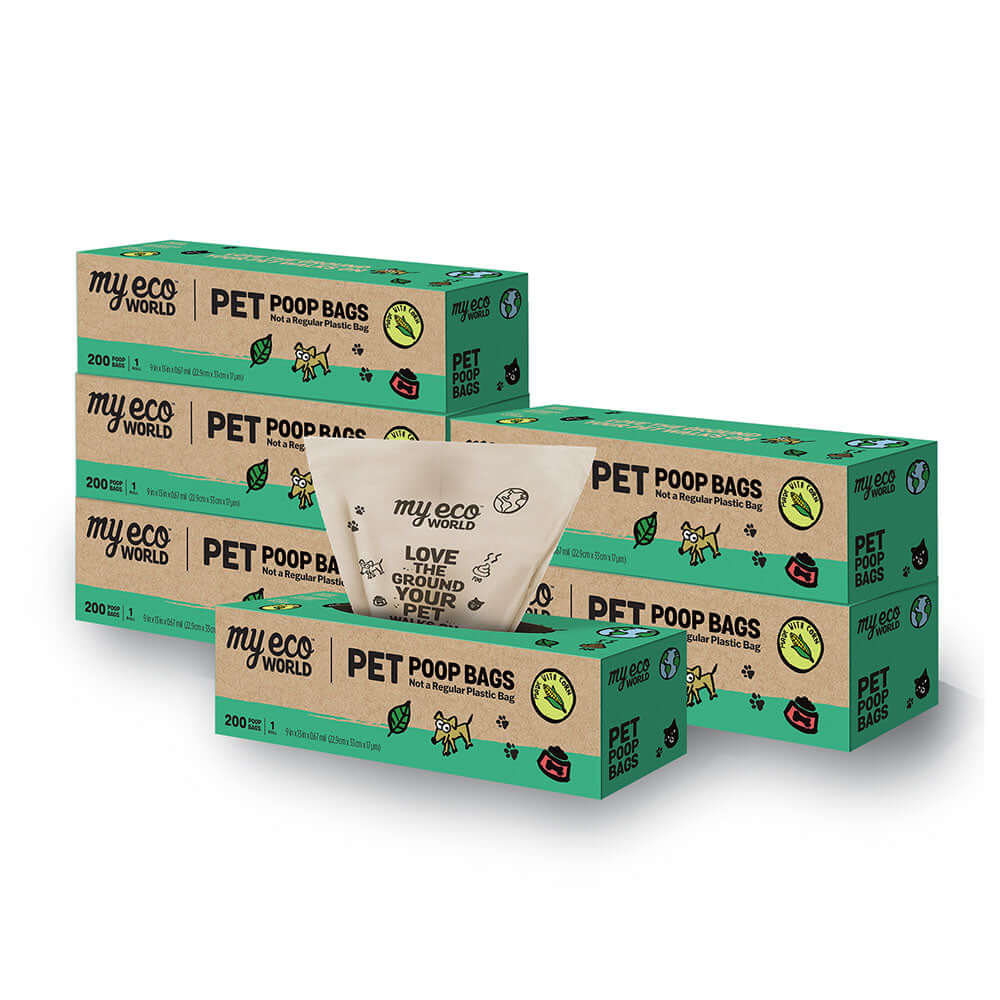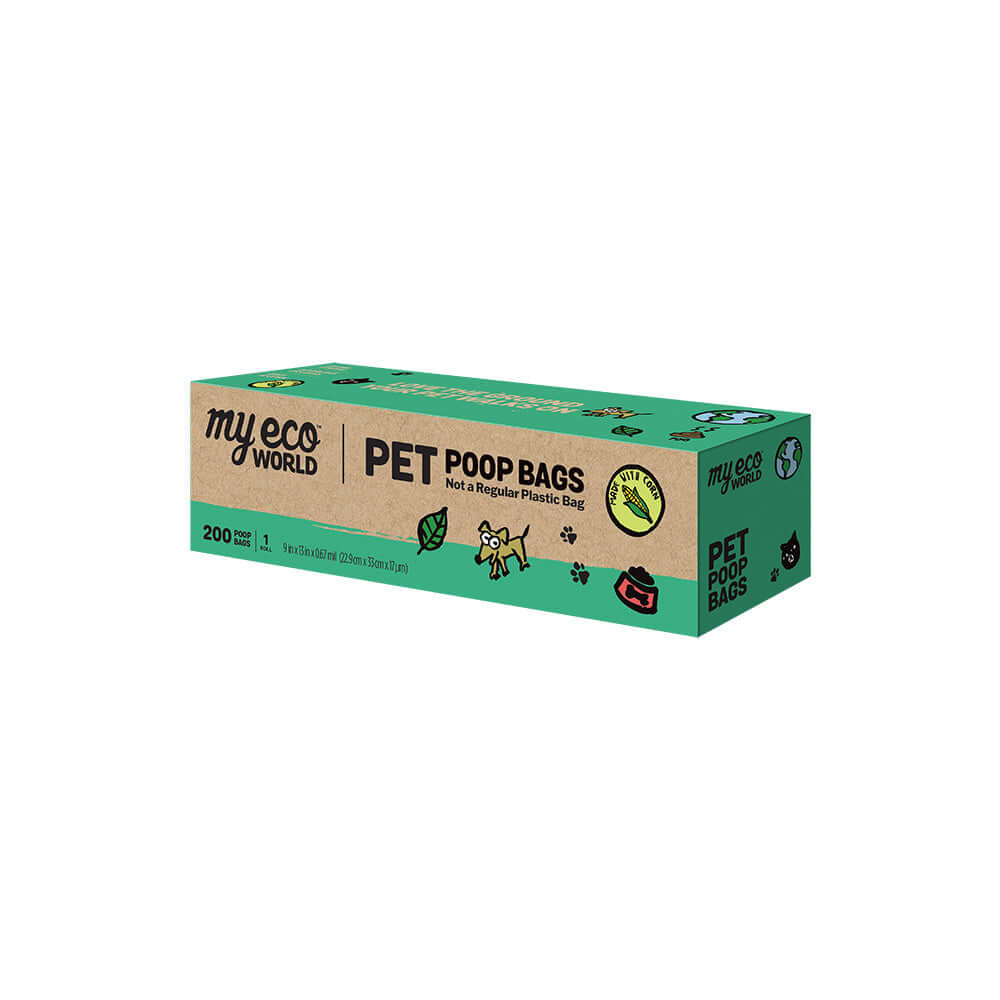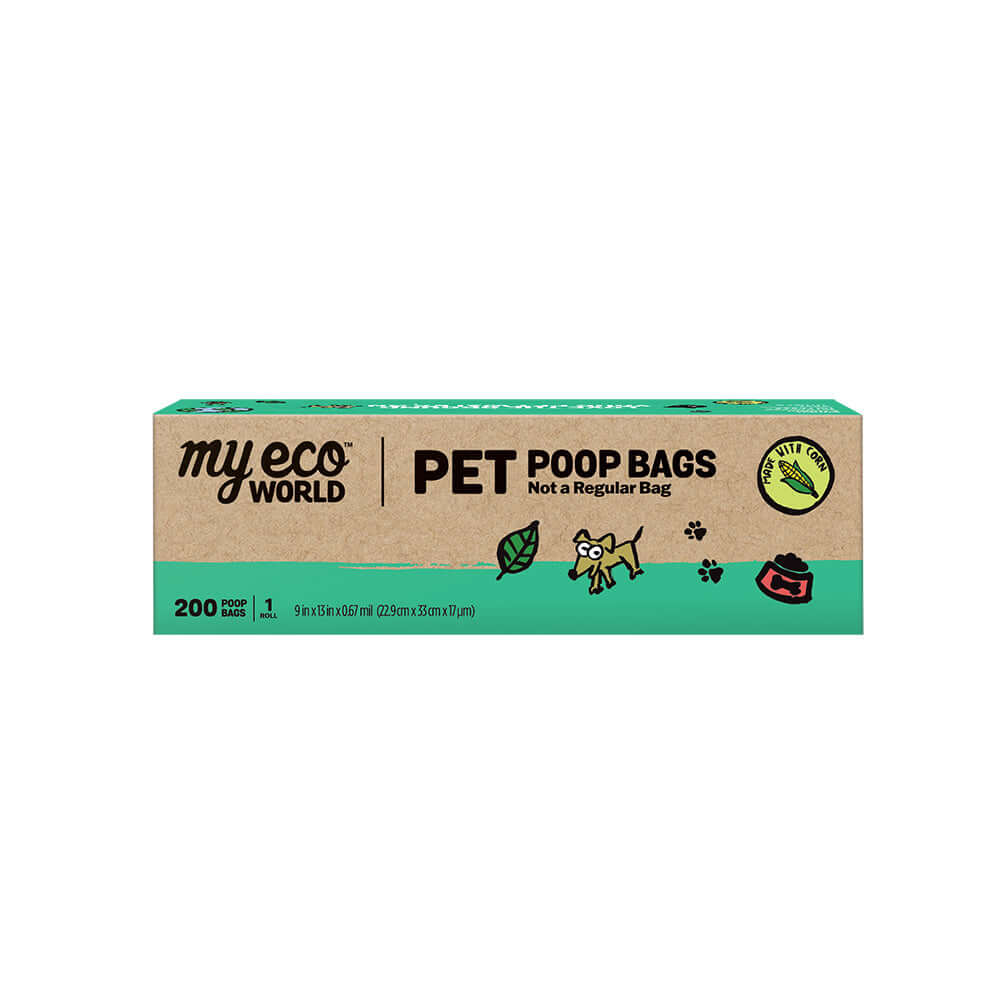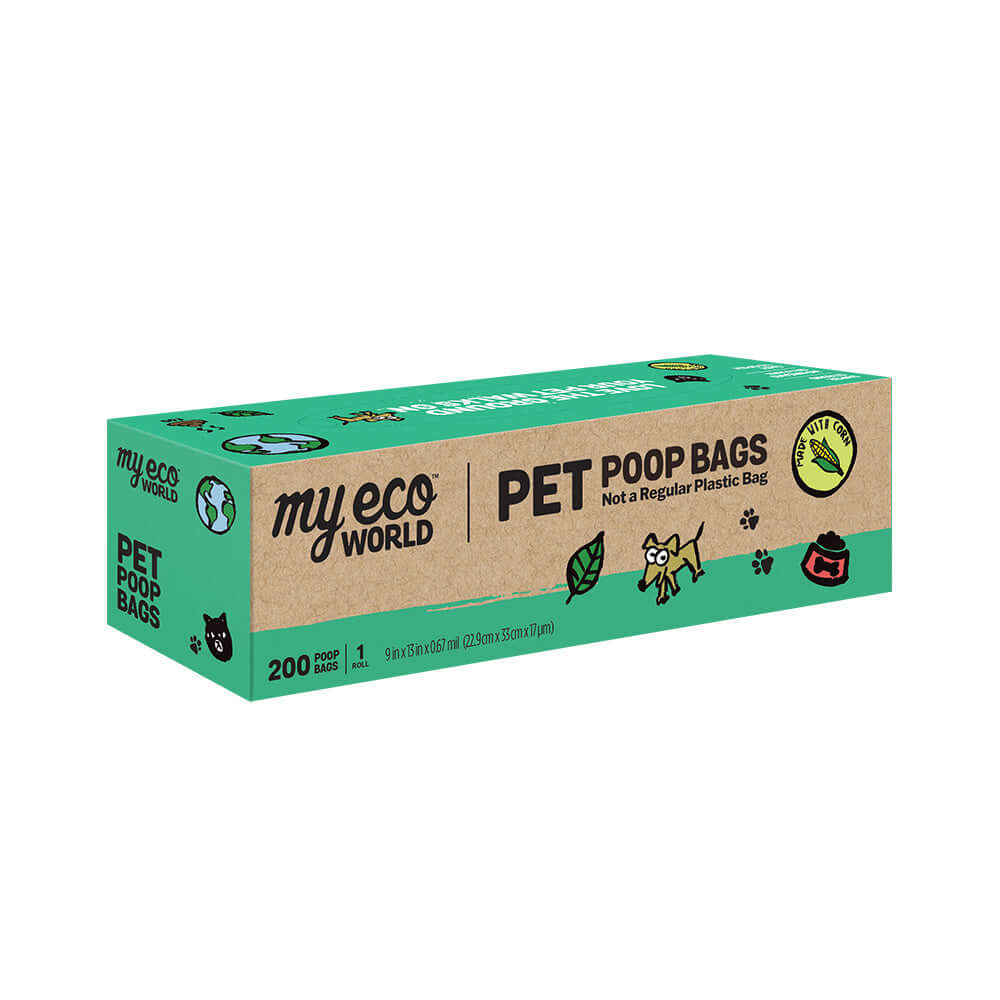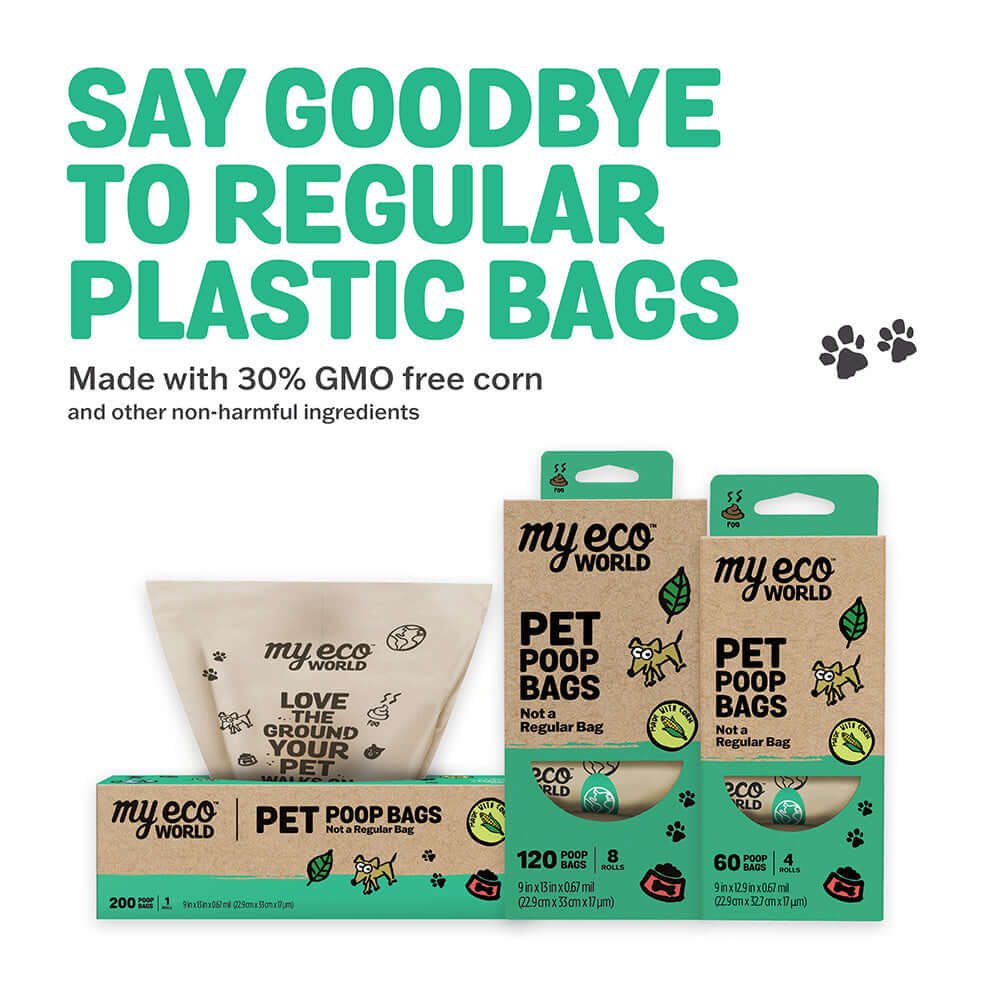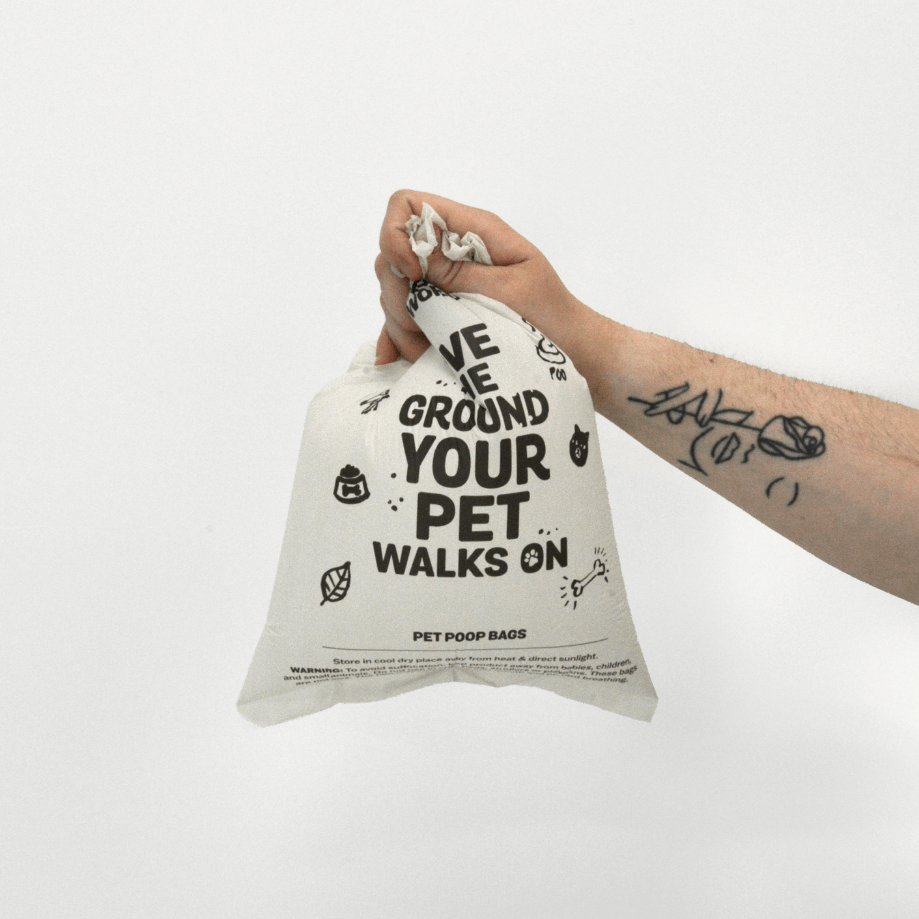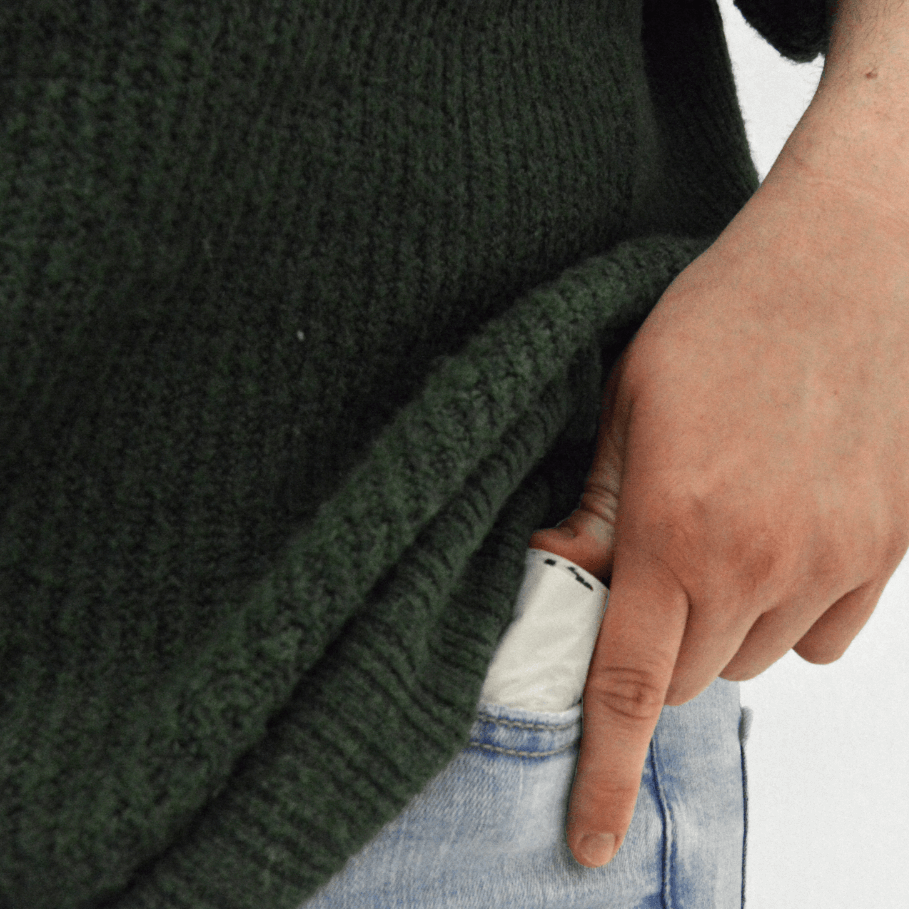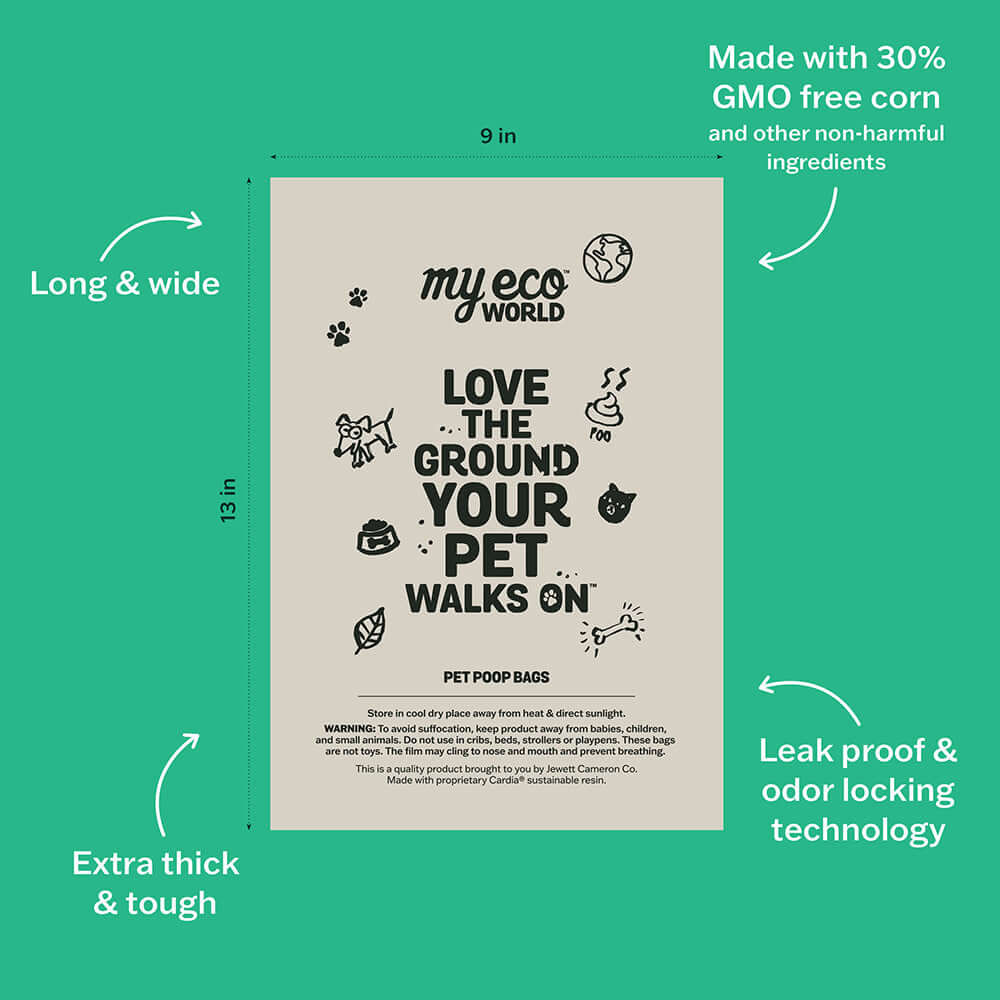For walks that leave only paw prints behind.
HAVE QUESTIONS?
We have answers. View our most asked inquiries below. Still unsure? Contact us for help.
WHAT IS THE DIFFERENCE BETWEEN RECYCLED POOP BAGS AND POOP BAGS MADE WITH CORN?
The key difference lies in the materials used and their environmental impact. Our recycled poop bags are crafted from post-consumer recycled plastics, which helps reduce waste by repurposing plastic for a second use. These bags are not designed to breakdown. On the other hand, our corn-based poop bags are made from corn and other certified compostable materials, specifically designed to break down in designated compost facilities or home composts for poop and manure within as little as 90 days.
HOW DO I DISPOSE OF THESE POOP BAGS?
For recycled plastic poop bags, it's best to dispose of them in your regular trash, but make sure to follow your local guidelines on the disposal of pet waste. Although these bags are made from recycled materials, they are not compostable and should not be placed in compost bins. For our poop bags made with corn, if you have access to a composting facility that accepts pet waste or if you maintain an at-home compost designed for pet waste, you can compost them there. If such options aren't available, these bags should also be disposed of in your regular trash to prevent contamination of other compost materials.
HOW ARE THESE LESS ENVIRONMENTALLY IMPACTFUL THAN TRADITIONAL PLASTIC?
Our recycled plastic poop bags are less environmentally impactful than traditional plastic bags because they are made from post-consumer recycled materials, which reduces the demand for new plastic production and helps keep plastic out of landfills by giving it a new life. Meanwhile, our poop bags made with corn are a sustainable alternative as they are made from certified compostable materials and are designed to breakdown in compost in as little as 90 days in the proper composting conditions. Both options contribute to reducing the environmental footprint compared to conventional single-use plastic bags, which are often made from entirely new materials and do not breakdown, persisting in the environment for hundreds of years.

